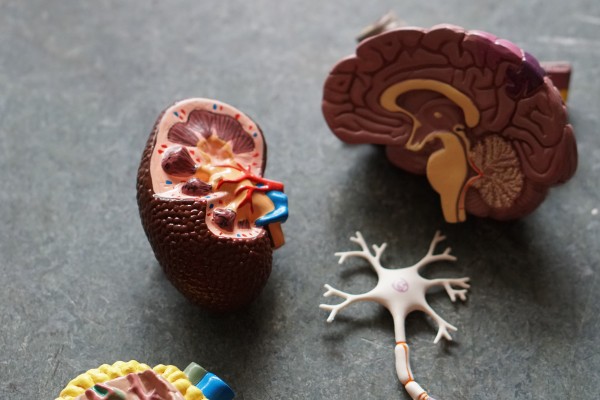The Key To Unlocking Your Optimal Health
Posted Jun 08, 2023 at 14:25
Posted Jun 08, 2023 at 14:25

The vagus nerve, also known as the 10th cranial nerve, is a vital part of the autonomic nervous system that plays a crucial role in maintaining the body's homeostasis. It is the longest cranial nerve and is responsible for controlling the majority of the body's parasympathetic functions, including the regulation of the heart rate, digestion, and breathing. In recent years, researchers have discovered that the vagus nerve is not just a vital part of the nervous system, but it also plays a crucial role in overall health and wellbeing.
One of the key functions of the vagus nerve is to regulate the parasympathetic nervous system, which is responsible for the "rest and digest" functions of the body. When activated, the vagus nerve promotes relaxation, digestion, and a sense of calm. In contrast, when the sympathetic nervous system is activated, it can lead to the "fight or flight" response, which triggers stress and anxiety.
The vagus nerve has also been found to play a significant role in the body's immune system. Recent studies have shown that the vagus nerve communicates with the immune system, specifically with the spleen, and plays a role in regulating inflammation. This discovery has led researchers to explore the potential of using vagus nerve stimulation as a treatment for autoimmune diseases and other conditions characterized by chronic inflammation.
In addition to its role in the immune system, the vagus nerve also plays a crucial role in mental health. Studies have shown that individuals with depression and anxiety often have a dysfunctional vagus nerve. By activating the vagus nerve through deep breathing, meditation, or vagus nerve stimulation, individuals can improve their mood, decrease anxiety, and reduce symptoms of depression.
Moreover, recent research has also shown that the vagus nerve plays a role in gut health. The gut is often referred to as the "second brain" because of the significant number of nerve cells it contains. The vagus nerve plays a crucial role in the communication between the gut and the brain, regulating gut motility, and controlling the release of digestive enzymes.
In conclusion, the vagus nerve is an essential part of the body's autonomic nervous system, playing a crucial role in maintaining homeostasis. It also plays a vital role in overall health and wellbeing, including regulating the immune system, improving mental health, and maintaining gut health. By understanding the importance of the vagus nerve, individuals can take steps to activate it and promote overall health and wellbeing.